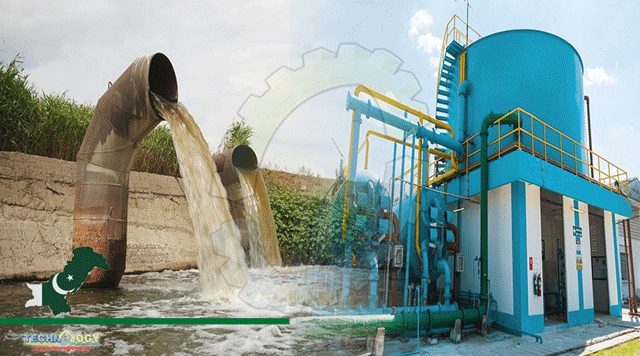Pakistan Has Plans To Introduce Indigenous Technology To Treat Wastewater In Its Several Major Cities To Tackle Threat Of Waterborne Diseases.

Pakistan Has Plans To Introduce Indigenous Technology To Treat Wastewater In Its Several Major Cities To Tackle The Threat Of Waterborne Diseases. This decision was taken a following a successful pilot project undertaken at the National Agricultural Research Centre (NARC) on wastewater treatment through bioremediation technology.
As per official data, about 4.36 billion m3 (BCM) wastewater gets generated every year, of which 1.30 BCM is industrial wastewater, while 3.06 BCM is domestic water. Currently, not even 1% of the total wastewater gets treated prior to its disposal.
About 1.02 BCM of the wastewater is used for irrigation without any treatment. About 32,000ha of agricultural land gets irrigated by untreated municipal wastewater every year, and around 1.43 BCM of untreated municipal wastewater annually gets discharged into major rivers. The contaminated water is leading to an annual income loss of $380m for the country besides causing the deaths of 250,000 children of less than five years of age every year due to waterborne diseases.
The news.com.pk quoted experts as saying that economic incentives were not given in the past for industries to gain environment-friendly technologies. Failure of targeted environmental policies have further compounded the problem, they added.
The experts pointed out that while laws and regulations have been formulated regarding treatment and disposal of wastewater, lack of skilled resources is deterring the implementation.
This news was originally published at Water Technology.